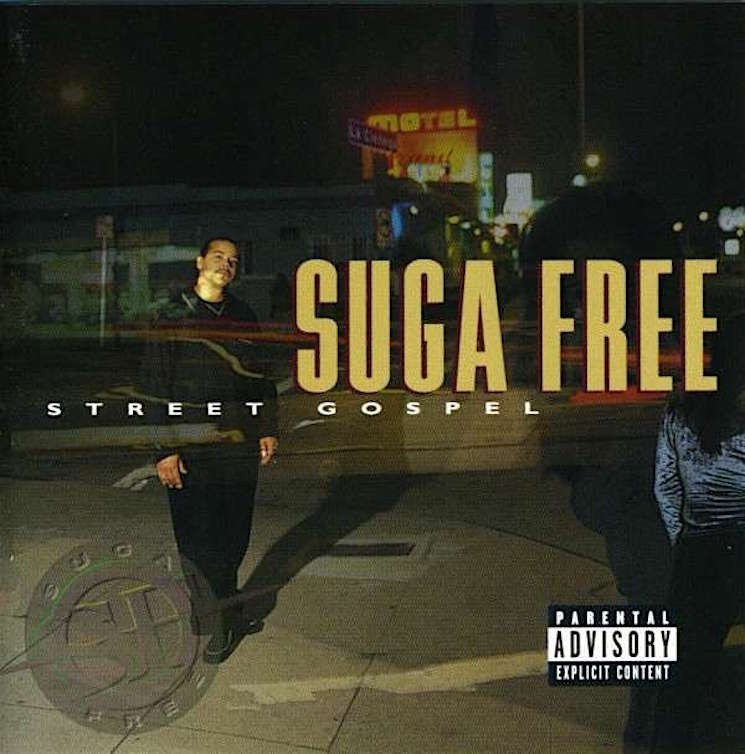It’s fitting that the world’s oldest profession would produce something as timeless as Suga Free’s Street Gospel. In the two decades since the immaculately permed Pomona pimp with the freshly pressed white linen suit delivered one of the most unimpeachable West Coast rap classics, his influence has remained ubiquitous.
You can see it in disciples such as Kendrick Lamar, who has repeatedly professed Suga Free’s importance to him and the community of Compton. Or Schoolboy Q, who conscripted the rap veteran for a guest verse on his last album. Vince Staples indicted ’90s hip-hop traditionalists for omitting Street Gospel from the canon. YG sampled him.
Should you ever need to tell the difference between an L.A. native and a transplant, just start rapping “Why U Bullshittin’?” If they don’t start humming the sitar riffs and invoking “waves as deep as Redondo Beach,” they’re not from around here. It’s an indelible KDAY staple, as locals-only as your favorite taco truck or instinctively taking Fountain at rush hour.
You can’t talk Street Gospel without DJ Quik. The Compton legend not only brilliantly produced Suga Free’s debut but discovered him, too — via Tony “Black Tone” Lane, who introduced Quik to Dejuan Rice at a baseball card shop in the mid-’90s. At that initial meeting, the friendly neighborhood playa partner immediately began beating on the table, busting out rhymes and courting fate.
Until then, Suga Free could mostly be found procuring near Holt Street in Pomona. Born in Gardena, the future rapper moved to Oakland as a baby, where his earliest memories involved a drunken, abusive father, who would choke his mother in front of Dejuan and his younger sister. The horrors are chronicled in harrowing detail on Street Gospel’s finale, “Dip Da.”

















Speak On It!